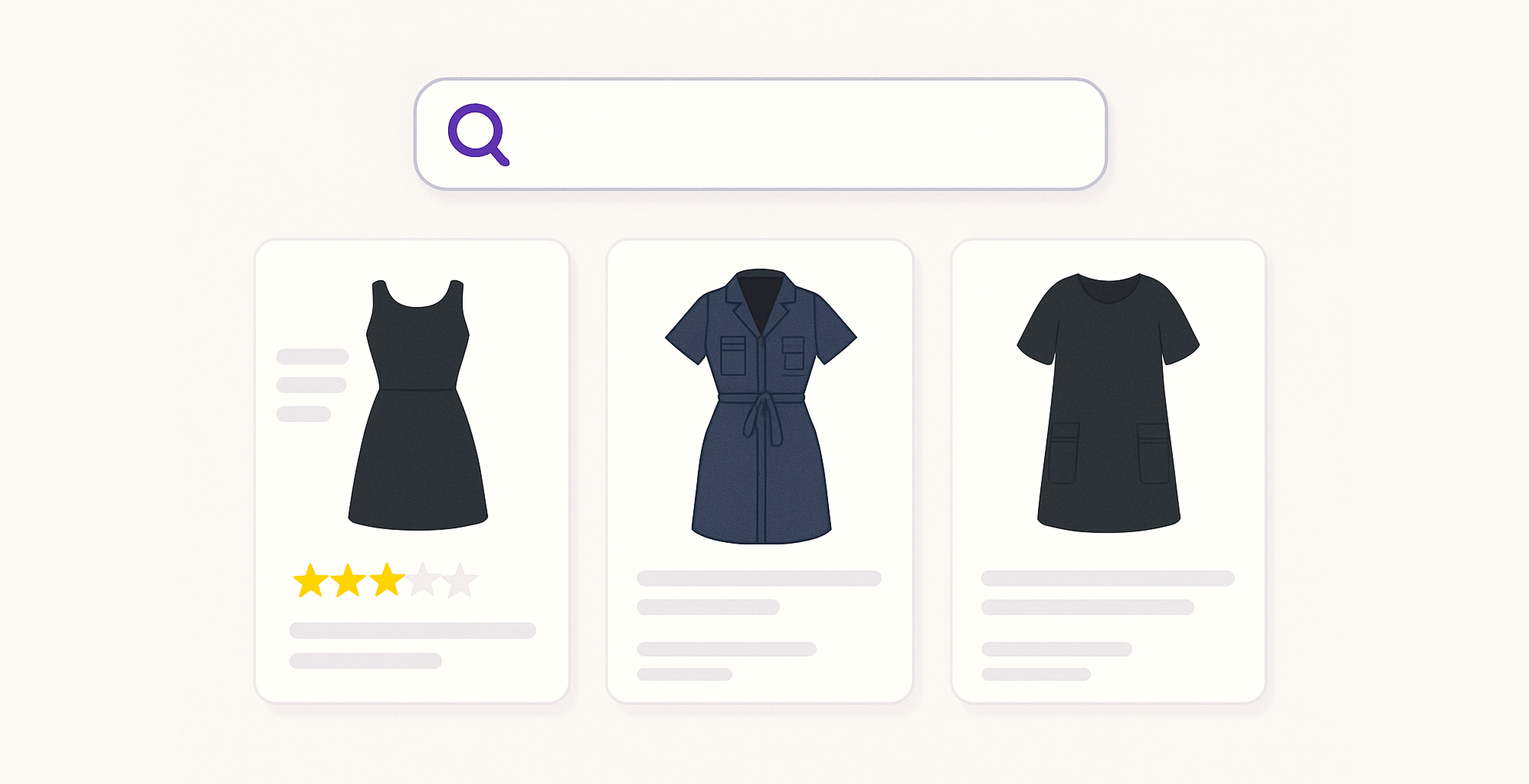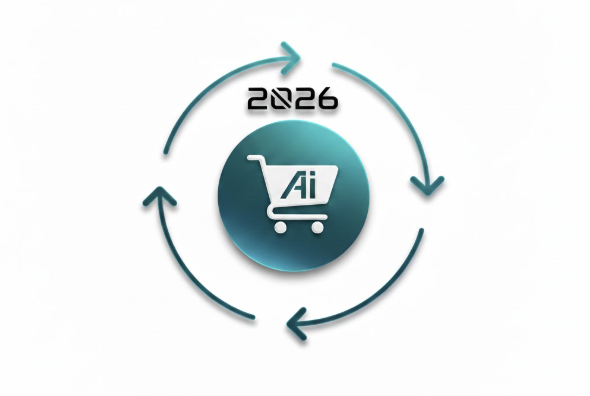Keyword vs. Vector vs. Hybrid Search: What Really Drives Conversions?

Not all search is created equal - especially when your bottom line depends on it
If you’ve ever typed “black dress with pockets” into a site and gotten zero results (or worse, 472 completely irrelevant ones), you already know: the search bar can make or break the shopping experience.
Let’s break down the three main types of search technologies brands are using today - and why hybrid search is quickly becoming the new standard.
Keyword Search: Classic, But Clunky
Keyword search is the original workhorse of ecommerce. It’s fast, reliable, and built on matching query terms to product fields like names, descriptions, and tags.
Pros:
- Quick and lightweight
- Easy to tune for merchandising
- Predictable results
Cons:
- Doesn’t understand intent
- Misses synonyms, typos, or natural language
- Fragile - one wrong word and results go off a cliff
Example:
You search for “black dress with pockets” and only get exact matches with that phrase - skipping right over the bestselling “utility midi jumper” that checks all your boxes.
Vector Search: Smarter, But Slippery
Vector search uses AI to interpret meaning - not just words. It maps both product content and queries into a semantic space, so it can return results that feel right, even if they don’t share exact terms.
Pros:
- Understands natural language, typos, and vague queries
- Great for discovery and long-tail searches
- Learns and improves over time
Cons:
- Harder to control or explain
- May surface unexpected results
- Doesn’t always align with brand priorities or inventory strategy
Example:
That same search might return a “midnight utility tunic” or a “dark cargo romper” - semantically aligned, but maybe not exactly what the shopper had in mind.
Hybrid Search: Intent Meets Precision
Hybrid search blends the best of both worlds: the exactness of keyword search with the intelligence of vector-based AI. Some systems even layer in LLM-based re-ranking, real-time enrichment, and merchandising logic to guide results toward business goals like conversion, AOV, or inventory turn.
Pros:
- Understands both literal and conceptual queries
- Balances control with discovery
- Tunable to brand and performance needs
Cons:
- More complex to build and maintain
- Requires thoughtful ranking and tuning
Example:
Now “black dress with pockets” returns top-selling, high-margin dresses first - even if the copy doesn’t use those exact words - then backfills with stylistically or functionally similar pieces.
So, What’s Right for You?
- If your catalog is small and structured, keyword might still get the job done.
- If you’re focused on discovery, natural language, and AI innovation, vector could open new doors.
- But if you care about conversion, brand safety, and shopper satisfaction - you’ll likely need hybrid.
How Envive Does It Differently
Envive’s AI Search Agent combines keyword and vector search, reranks results using LLMs, and gives you the controls to tune it all to your business goals. It’s not just “fuzzy matching” - it’s intelligent search that understands what your shopper means and what you want them to see.
Because at the end of the day, the goal isn’t just better search - it’s better results.

Other Insights

Insights with Ajinkya (Jinx) Joglekar

The Financial Inevitability of Custom AI Models

The Ecommerce Reset: What Matters Going Into 2026
See Envive
in action
Let’s unlock its full potential — together.






